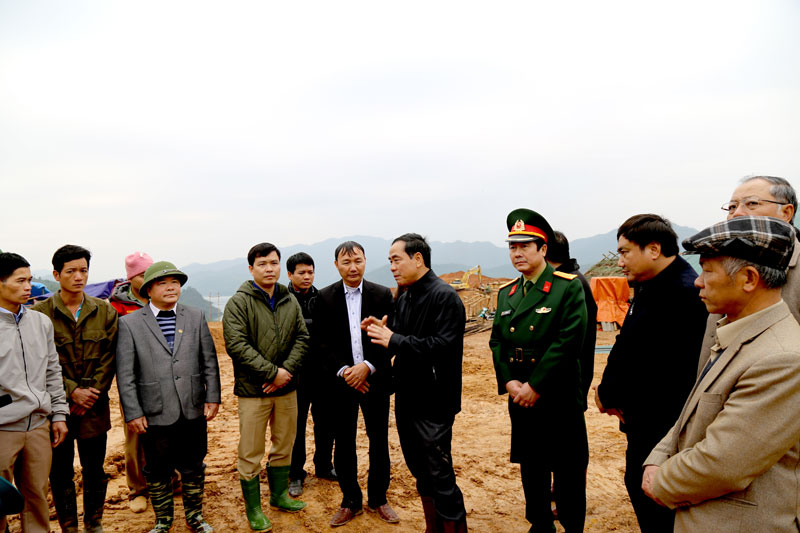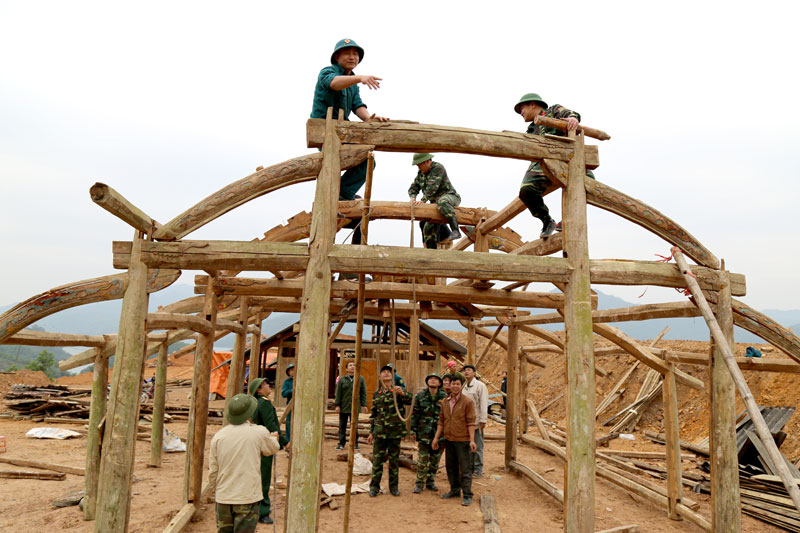


Quang
made the statement while inspecting the progress of a resettlement project in
Lau Bai hamlet, Vay Nua commune (Da Bac district) and holding a meeting with the
district’s authorities.
Da
Bac district was permitted with five urgent resettlement projects for people in
landslide-prone areas, including Nhap hamlet in Dong Ruong commune, Ke hamlet
in Muong Chieng commune, Coc area in Suoi Nanh commune, Tup hamlet in Tien
Phong commune and Lau Bai hamlet in Vay Nua commune. The projects will arrange
new locations for 186 households on a total area of 19.5ha, with an average
200-400 square metres of land allocated for each family.
The
works of the projects comprise land clearance, water supply, electricity,
inter-roads, primary schools and kindergartens. Total investment for the five
resettlement projects was 112.93 billion VND (4.97 million USD), including 8.4
billion VND for land clearance and 4.04 billion VND for moving people to new
areas.
In
2017-2018, priority will be given to land clearance, water supply, electricity
and schools. Other works such as communal houses and inter-commune roads will
be built in the coming years.
Regarding
the construction progress, the investors have urged contractors to complete
asset inventory and publicise compensation plans for households with reclaimed
assets and land. Most of local residents showed their approval and support for
the plans and handed over their land to construction units.
In his conclusion, Mr. Nguyen Van Quang, Chairman of the
provincial People’s Committee, said the implementation of the resettlement plan
has still faced difficulties and shortcomings, which have not been reported
promptly to the provincial People’s Committee for settlement. He asked the
district People’s Committee to map out a specific plan for the work.
He asked provincial departments and sectors as well as the
People’s Committee of Da Bac district, the investors, the project management board
and contractors to concentrate human and material resources and work together closely
to complete the works of the resettlement areas on schedule.
Difficult and relevant issues should be reported daily to the
provincial People’s Committee, he stressed.
The Department of Finance was requested to coordinate with the
Department of Labour, War Invalid and Social Affairs and the Fatherland Front to
ensure that local households will be provided with adequate assistance.
Meanwhile, as many as 1.5 billion VND will be allocated
to around 250 local households to build hygiene toilets.
The same day, Quang and other local officials inspected
the construction site of the resettlement area in Lau Bai hamlet, Vay Nua
commune (Da Bac district), during which he urged the contractors to quicken the
implementation of the project so as to hand over new houses to local residents before
the Lunar New Year festival.

Chairman of the provincial People’s Committee Nguyen Van Quang and
the working delegation inspect the construction
progress on the resettlement area in Lau Bai hamlet, Vay Nua commune (Da Bac
district).

The military and reserve forces of Da Bac district help local residents in Lau Bai
hamlet, Vay Nua commune (Da Bac district), build houses.